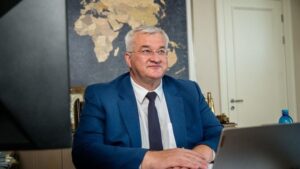
Ukrainian Foreign Minister Andriy Sybiga said that the Foreign Ministry will play a role in relation to potential partners in the controlled export of Ukrainian weapons.
“Support for our defense industry is an absolute priority for our diplomacy. It includes three priorities. The first is more investment. The second is support for the president’s initiative on the possibility of exporting surplus products from our defense industry,“ Sybiga said during his opening remarks at the third International Defense Industry Forum (DFNC3) on Monday.
According to Sybiga, the Foreign Ministry ”will play its role here with regard to potential partners.”
“Those countries that today take a passive position on supporting Ukraine, that provide covert or overt support for Russian aggression, will certainly not be included in the list of partners who will be able to cooperate with Ukraine and Ukrainian companies in this area,” the head of the ministry said.
The third priority of the Foreign Ministry in supporting the Ukrainian defense industry, Sibiga added, is “to create a real multiplier effect from our weapons.” In particular, this refers to the creation of jobs for Ukrainian citizens in Ukraine.
“This, by the way, is also our integration into the European Union. The latest Eurobarometer says that it is precisely because of our contribution to security that we are most eagerly awaited as a future member of the EU,” the minister added.
https://interfax.com.ua/news/diplomats/1110142.html

The National Bank of Ukraine (NBU) reduced its sales of dollars on the interbank market by $227.2 million, or 40.6%, to $332.6 million last week, the lowest level since mid-April, according to statistics on the regulator’s website.
According to the NBU, it even managed to purchase $1.5 million, which is also the best result since mid-April this year.
According to the National Bank, during the first four days of last week, the average daily negative balance of currency purchases and sales by legal entities fell to $11.8 million from $49.6 million during the same period a week earlier, totaling only $47.3 million. Moreover, on September 29, for the first time in a long time, a positive balance of $49.8 million was recorded.
At the same time, on the cash market, on the contrary, there was a significant increase in currency purchases by the population, as a result of which the negative balance grew to $132.28 million from $34.6 million on Saturday-Thursday. This result is also due to the fact that, after a break of almost a month, purchases of non-cash currency exceeded sales on Tuesday-Thursday.
The official hryvnia-to-dollar exchange rate, which started last week at 41.3811 UAH/$1, strengthened to 41.1420 UAH/$1 in two days, but fell to 41.2286 UAH/$1 by the end of the week.
On the cash market, the dollar exchange rate over the past week followed the official rate, so overall it remained virtually unchanged for the week: buying was around 41.22 UAH/$1, and selling was around 41.30 UAH/$1.
“In the short term (1-2 weeks): the base corridor is 41.20-41.70 UAH/$1 with possible fluctuations and a tendency towards the upper limit. Medium term (2-3 months): 41.30-42.00 UAH/$1,” according to the forecast for the cash market exchange rate provided by experts from KYT Group, a major player in the cash currency exchange market.
They noted that spreads on the cash market remain stable (0.40-0.50 UAH/$), which reflects the controllability of the market and the absence of sharp imbalances that could radically change the market situation.
“The NBU’s reserves remain high, which guarantees the regulator has the resources to smooth out fluctuations. Demand for the dollar from the population is restrained, and import payments, like the behavior of the population, do not create a critical burden,” KYT Group believes.
As for the international context, experts believe that after the Fed’s actual rate cut in September, markets have already priced in a “cheaper” dollar, and now the focus is on the Fed and ECB’s further actions until the end of the year, which will be triggered by macro data (inflation, labor market, etc.).
“Long term (6+ months): the baseline scenario of a gradual devaluation of the hryvnia remains. The benchmark is 43.00-44.50 UAH/USD until mid-2026,” KYT Group said in a comment.
https://interfax.com.ua/news/projects/1108372.html

The rapid growth in the price of gold continues on global markets: December futures prices on the Comex exchange rose to $3,965 per troy ounce on Monday
Against the backdrop of rising gold prices, other precious metals are also becoming more expensive.
Platinum added about 0.8%, rising to $1,085 per ounce, on expectations of reduced supply from South Africa.
Silver strengthened by 1.2%, reaching $32.7 per ounce, following the general increase in interest in precious metals.
According to experts, if political uncertainty in the US and the EU persists, gold could consolidate above the $4,000 mark, with silver and platinum continuing to rise moderately in its wake.
Earlier, the Experts Club analytical center presented an analysis of the world’s leading gold-producing countries in its video on YouTube channel – https://youtube.com/shorts/DWbzJ1e2tJc?si=9YBue5CS6dz-tA6_

The Asset Recovery and Management Agency (ARMA) has opened a call for proposals for the management of 25% of the authorized capital of PJSC Kryukiv Railway Car Building Works (KVBZ, Kremenchuk, Poltava region), according to the ARMA website.
The agency notes that this stake belongs to Austria’s Capital Management GmbH (controlled by Russian citizen IF-U) and is valued at more than UAH 21.5 million.
The asset was transferred to ARMA for management by decision of the Holosiivskyi District Court of Kyiv in July 2022.
“ARMA invites potential managers to participate in preliminary market consultations and submit their proposals,” the statement said.
As reported, ARMA has repeatedly tried to find a manager for this block of shares in PJSC KVBZ – according to information in Prozorro, the last tender announced in April 2025 did not take place due to the absence of proposals.
According to the National Securities and Stock Market Commission (NSSMC) for the first quarter of 2025, 25% of PJSC KVBZ shares are owned by Estonian companies AS Skinest Finants and Osauhing Delantina, and 20% are owned by Transbuilding Services Limited, registered in England.
KVBZ names the chairman of the supervisory board and president Volodymyr Prykhodko as the main owner.
The plant manufactures passenger and freight cars, regional diesel trains, high-speed interregional locomotive-hauled trains, spare parts, and bogies for freight cars.
In 2024, the plant sold 1,096 freight cars, which is almost 10% more than sales in pre-war 2021. The first 15 passenger cars from contracts for 66 units were also delivered to Ukrzaliznytsia.
Net profit amounted to UAH 81.08 million, compared to a loss of UAH 143.76 million in 2023, with net income growing by 81% to UAH 3.77 billion.
As of the beginning of 2025, the plant employed 3,611 people (compared to 3,946 a year earlier).
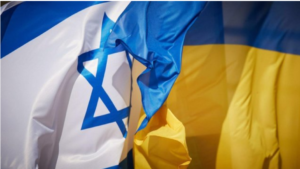
The Embassy of the State of Israel in Ukraine, together with the Israeli international cooperation agency MASHAV, donated a water purification system to the Kyiv Regional Clinical Hospital No. 2.
The handover ceremony was attended by Michael Brodsky, Ambassador Extraordinary and Plenipotentiary of the State of Israel to Ukraine, Mykola Kalashnyk, Head of the Kyiv Regional Military Administration, Daria Melnyk, Director General of Kyiv Regional Clinical Hospital No. 2, as well as the management and staff of the medical facility.
“The transfer of water purification systems is part of a broader project to assist Ukraine, which Israel began even before the start of the full-scale war,” said Israeli Ambassador Michael Brodsky. “Israel provides comprehensive support to the Kyiv Regional Hospital: its employees underwent rehabilitation training in Israel. We will continue to assist Ukraine. Israel stands with Ukraine. Together, we will overcome all difficulties. When the war in Israel ends, the war in Ukraine will end – and our cooperation will continue.”
Hospital Director Daria Melnyk gave the guests a short tour of the physical rehabilitation department, where patients undergo recovery using methods including Israeli medicine. She noted that MASHAV rehabilitation courses have received positive feedback not only from doctors in the Kyiv region, but also from medical professionals in Bucha and Obukhiv.
“The hospital constantly needs high-quality water. We have many patients who are recovering from injuries for a long time. The donated unit provides filtration of up to 3,000 liters of water per day, which is sufficient for the hospital’s needs,” Melnik said.
The head of the Kyiv Regional State Administration, Mykola Kalashnyk, said that the regional administration plans to build an open rehabilitation area with exercise equipment on the hospital grounds, next to the new water purification unit.
“Such assistance motivates us to move forward. This is important because enemy attacks often lead to power outages. The installation will allow the hospital to have a stable water supply even under such conditions. Thank you for your support, for the equipment, and for the training programs for our medical staff. I wish your people victory as well,” Kalashnik emphasized.
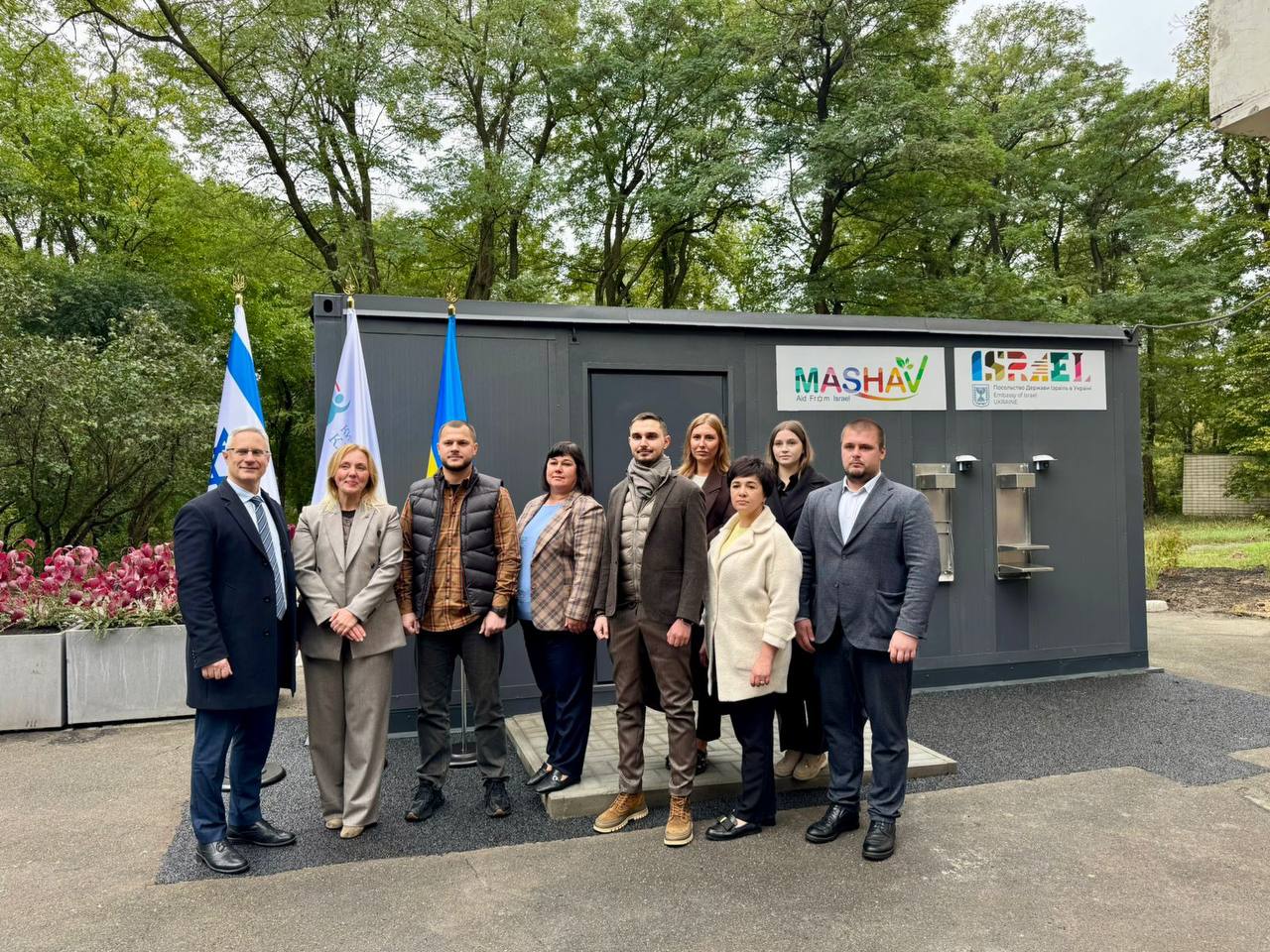
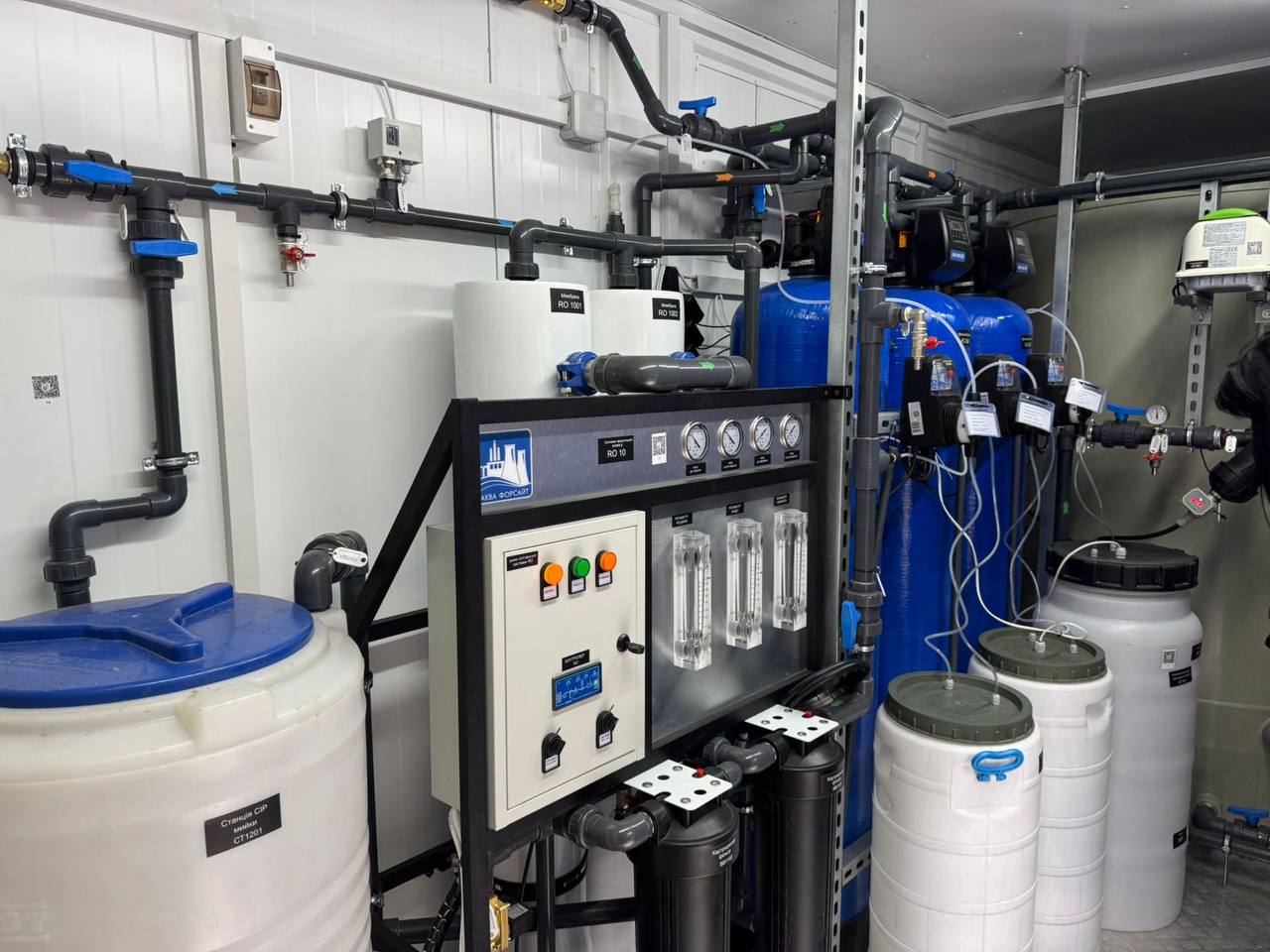
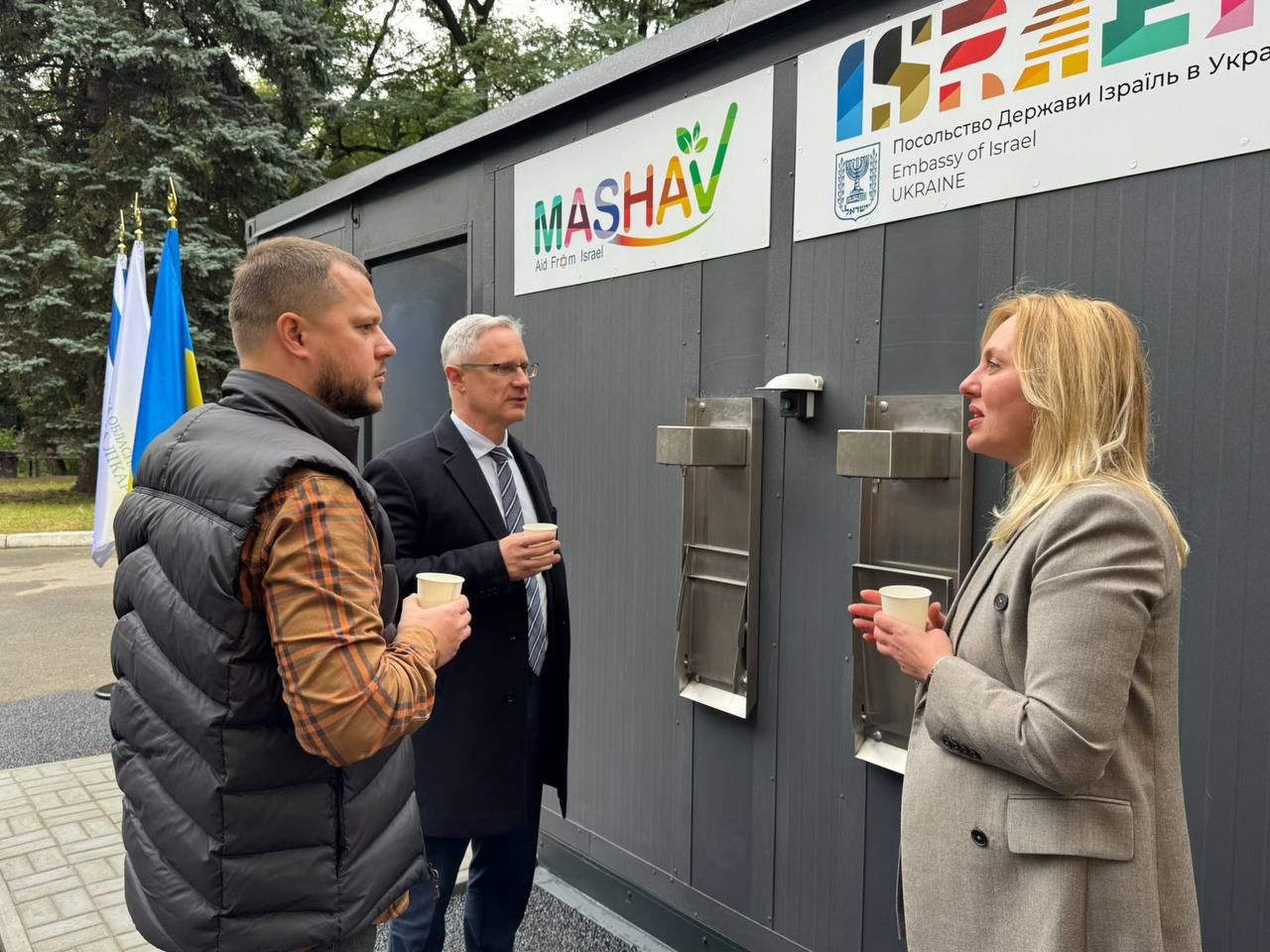

European supervisory authorities (EBA, EIOPA, and ESMA – ESA) are warning consumers that crypto assets can be risky and that legal protection, if any, may be limited depending on which crypto assets they invest in.
As reported on the European Insurance and Occupational Pensions Authority (EIOPA) website on Monday, the warning is accompanied by an information bulletin that explains what the new EU regulation on crypto-asset markets (MiCA) means for consumers. Specific steps are recommended that consumers can take to make informed decisions before investing in crypto assets, such as checking whether the provider is licensed in the EU.
In addition, consumers are advised to familiarize themselves with the product or service and assess the risk before investing, check whether the crypto-asset service provider is licensed in the EU, and ensure that any wallets used to store their crypto-assets are sufficiently secure. These steps are particularly important at a time when consumer interest in such products and services is growing, partly due to aggressive promotion on social media by finfluencers.
According to the information available, from December 2024, the new EU Regulation on Markets in Crypto-assets (MiCA) will apply to certain types of crypto-assets and establish a consistent supervisory regime at both national and European levels for issuers and providers of crypto-asset services across the EU.